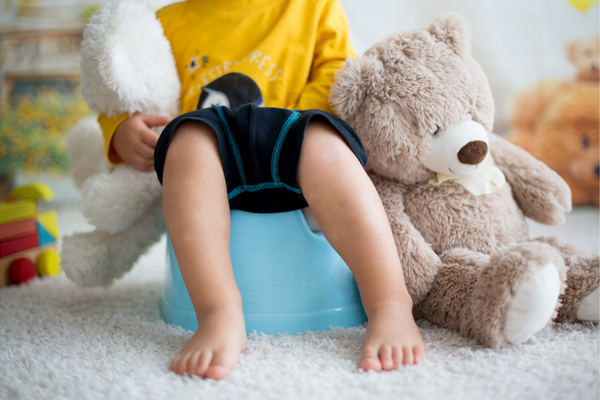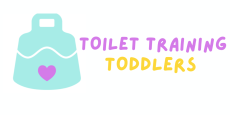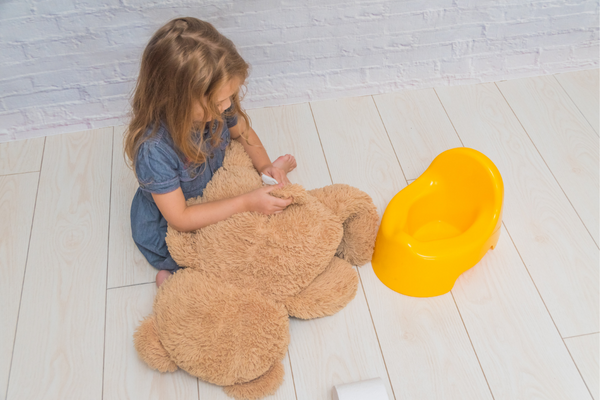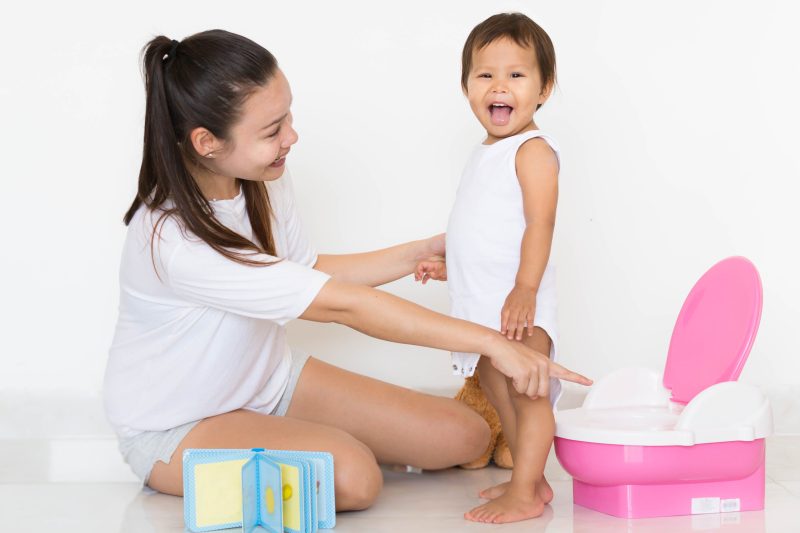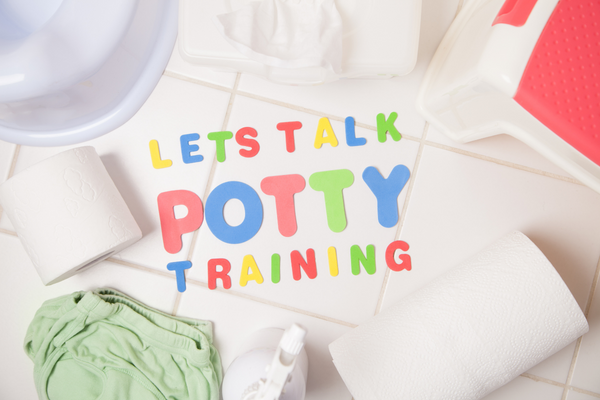Potty Training: Day One
Day one of potty training is one of many significant milestones in the life of a parent and their child. It serves as the gateway leading to a (hopefully successful) potty training journey.
In this article, we’ll be discussing the events that tend to happen on the first day of potty training. But first, you need to understand that the first day of potty training varies for each child. Potty training is a new skill, and like teaching them any other skill, you need to follow children at their own pace.
Disclaimer: This blog post contains affiliate links . If you use them, we might be rewarded credit or a commission of the sale. Please note that we only recommend tools that we personally use and love and we always have our readers’ best interest at heart.
How To Know If It’s Time To Start Potty Training
- Your toddler is showing interest in the potty or toilet
- Their nappies are dry after naps or after 2+ hours during the day
- Your toddler tugs on their wet diaper
- They tell you when they need to pee or poop
Keep in mind, there is no perfect time to start potty training!
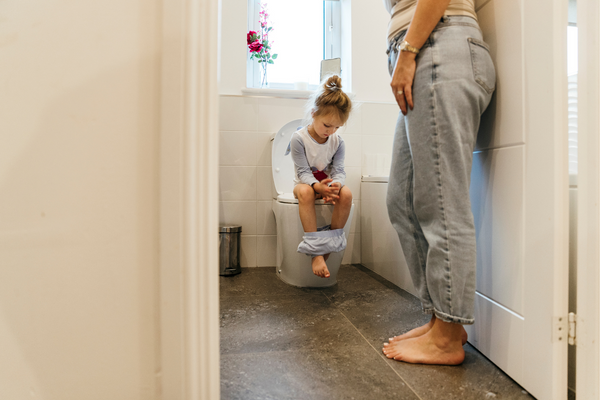
What To Expect On The First Day Of Potty Training
Accidents
Accidents are inevitable, and yes, there will be lots of them! Don’t expect instant success on the first day of potty training. There will be accidents and you might end up frustrated. Those accidents can last for days (even months). In such instances, try and avoid shaming your child. It could be that they’re not developmentally ready.
It Will Be Intense
As a parent, you’re the person in charge during this process. You will watch as accidents happen despite your effort. Be ready to devote your time and energy to trying to make it work. It will be intense! But there is light at the end of the tunnel – helping your toddler become diaper-free is a very rewarding experience.
Tips To Handle The First Day Of Potty Training
Here are some tips on how you can navigate day one of potty training:
- Start at the right time
- Start with a clear schedule
- Build excitement
- Brace yourself for accidents and frustration
- Follow a routine
Let’s go dive deeper into these tips.
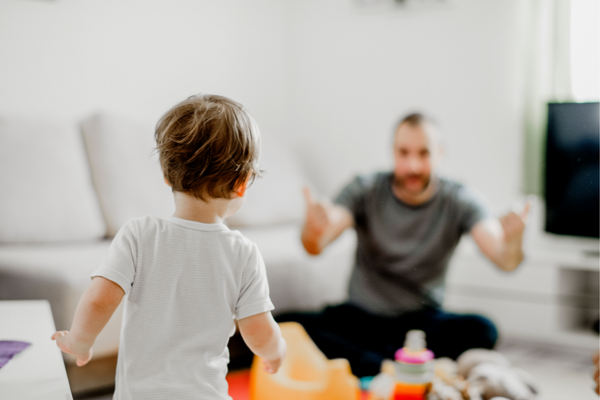
Start At The Right Time
Beginning potty training is great when there are no major disruptions in the child’s routine or that of the family. One major disruption could be moving house or the arrival of a newborn baby. Regardless, the first day of potty training should be at a good time when these disruptions are not in the background.
Start With A Clear Schedule
When you know you want to start potty training your child, do it at a time when your attention will not be divided. We recommend starting during a long weekend (or longer if your schedule permits) so you can stay home and dedicate the time to it. The bottom line is that potty training requires time and energy and starting it at a time you are preoccupied with work (or any other event) could jeopardize the success.
Build Excitement
When your child succeeds, a little praise from you will do a lot to build their self-confidence. You can try positive reinforcement by using stickers as a checklist when they successfully use the potty. You can build up excitement when getting something new; potty training books or a new potty. Excitement fosters their willingness to learn potty training.
Brace Yourselves For Accidents And Frustration
As mentioned earlier, accidents are inevitable. Prepare yourself to expect them, and when they do happen, try not to make a fuss. You don’t want to make your child feel anxious or ashamed. Remember, it will take them a while to get a hang of it.
Follow A Routine
Some children build up a habit in the times they pee or poop. In these situations, we recommend leaving their nappies off and encouraging them to use the potty. Following this routine can make potty training easier and faster. So before your first day of potty training, keep an eye out on your child’s routine.
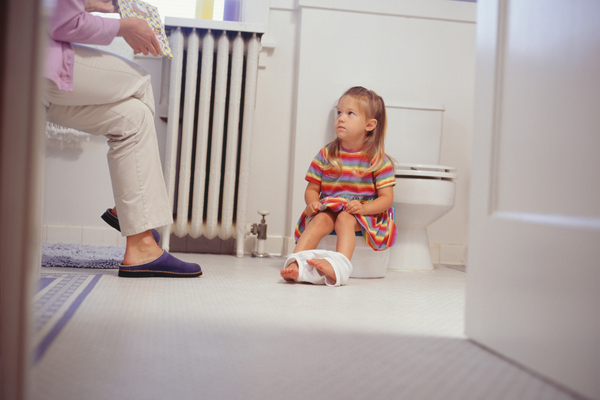
Is Your First Day Of Potty Training The Hardest?
Potty training is unique for every child. While some children regress after the first day of potty training, others improve. Both situations are completely fine. All that matters is that you remain relentless and you keep putting in the effort!
How To Start Your First Day Of Potty Training
Pick a suitable name
This means choosing what to call and describe your child’s bodily fluids. Make this decision before or on the first day of potty training as this sets the pace for the subsequent days.
Explain hygiene
Let your child know about processes like washing hands and wiping themselves after pooping (which they will need your help with the first few years).
Prepare your equipment
Be it a toilet seat or a portable potty, keep the equipment you are using on standby. You can place the potty in your child’s most frequented room. Just make sure to leave it where they can see it.
Keep a timer
Schedule potty breaks at intervals. Have them sit down on the potty after they wake up in the morning and after naps. Then consistently at 2-3 hour intervals, have them use the potty. Some children prefer if you stay with them and read a book, others prefer some privacy. You will quickly learn what your toddler prefers.
Respond quickly
The moment you notice your child might need to use the toilet, spring to action and help them. You might notice them squirming or holding their genital areas. If they begin urinating on the floor, quickly sit them on the potty. Even if you can catch one drop of pee in the potty, celebrate the win!
How Do I Know If Day One Was Successful?
Set the bar low for day one. A successful (or unsuccessful) day doesn’t mean it will continue like this. It’s a rollercoaster journey with lots of ups and downs. A successful first day might mean your toddler knows to pull down their pants, or it might look like multiple pees and poops in the potty. Either way, it’s day one of a long road ahead. Try and enjoy the ride and don’t let your expectations get in the way of what should be a positive experience for your child.
